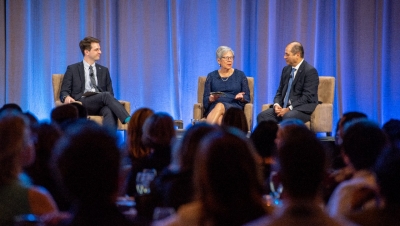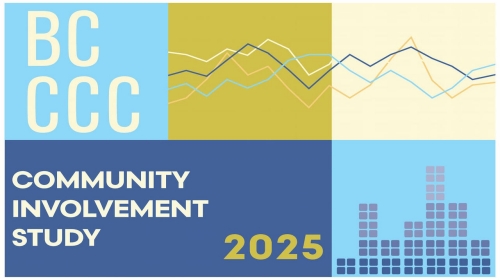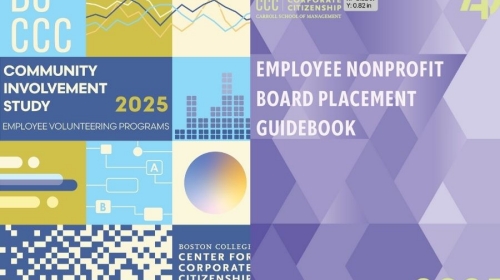WEBINAR: This webinar explores how to measure and communicate your organization's social impact with proven frameworks and strategies that matter to stakeholders.
From unacceptable results to an award-winning program

The following is excerpted from Issue 28 of The Corporate Citizen.
As Executive Vice President and Director of Communications and Responsible Business for the bank J. Reymundo Ocañas explained, the path to corporate citizenship excellence was not always easy. His frank discussion of BBVA’s lessons learned in corporate responsibility provided an exemplary case study of how to rebound from failure to success. It started in 2014, when the bank received the disappointing news that it had been given a “needs improvement” rating as a result of its Community Reinvestment Act (CRA) examination. This meant that, according to the Federal Reserve and other federal banking regulators, the bank was not doing enough to help meet the credit needs of the communities in which they do business, including low- and moderate-income (LMI) neighborhoods.
“It was a reputation-damaging result which disappointed our senior leaders and employees alike. As part of a global bank, we knew we had a responsibility to put our capital to work—not just for Wall Street but for Main Street,” said Ocañas. “We are living in an era of responsibility, and as companies, this applies to all of us. We have a duty of conscience, which we sought to honor.”
The bank responded to this news with an internal paradigm shift to reintroduce its purpose into its banking strategy. Over the next five years, the bank committed to invest $11 billion in mortgage and small business lending in LMI neighborhoods, as well as community development lending and investments. It also created a national community advisory board to investigate ways to reach those goals, made up of executives from community-based organizations, community development financial institutions (CDFIs), and activist groups. The bank further reinvigorated its corporate responsibility program to use its core capability as a bank to provide financial education to 10,000 LMI adults and small business owners each year. These objectives were supported with strong volunteering efforts, the capacity-building Opportunity Fellows program, and its social enterprise accelerator, BBVA Momentum.
As a result, the bank received an “Outstanding” CRA rating from the Federal Reserve Bank of Atlanta in 2018, marking its second improved rating since 2014. Building on that positive momentum, the bank’s global parent company made a recent pledge to mobilize €100 billion by 2025 to fight climate change and drive sustainable development. Ocañas also noted that BBVA has made similar strides in diversity and inclusion, advancing from a low score to high placement on multiple ratings such as the DiversityInc Top 50 Companies for Diversity, Human Rights Campaign’s Corporate Equality Index, and Bloomberg’s Gender-Equality Index.
Following Ocañas’ story, Evan Matzen, BBVA senior vice president and director of corporate citizenship, moderated a panel conversation between Ocañas and Janie Barrera, founding president and CEO of LiftFund, a small-business-focused CDFI and one of the bank’s community advisory board partners.
“You need good people to build something, and BBVA has been an amazing partner for us,” said Barrera, who used the BBVA’s Lending and Learning Center in San Antonio, Texas, as an example of a program that achieved mutual benefits. “We collaborated with the bank to learn how we could align, and this solution was something that worked for everyone.”
Related Content
RESEARCH BRIEF - Researchers investigated how ESG activities help or hurt financial performance, using nine years of data from over 1,200 global companies.
RESEARCH BRIEF - Researchers analyzed 4 US energy exchange-traded funds (ETFs) over 15 years, including 2 dirty energy funds tracking fossil fuel companies and 2 clean energy funds tracking renewable energy companies.
RESEARCH BRIEF - Researchers conducted a survey, which measured perceptions of CSR and ethical leadership within the manufacturing and service industries.
WEBINAR: This webinar explores how corporate giving will be reshaped by the One Big Beautiful Bill. Hear directly from corporate citizenship leaders as they share innovative, real-world strategies that deliver impact for communities and results for business.
This study explores shifting trends in employee volunteering, corporate giving, and other means of corporate community involvement.
This guidebook offers insights on placing employees in nonprofit board service roles.
This study explores shifting trends in employee volunteering, corporate giving, and other means of corporate community involvement.








